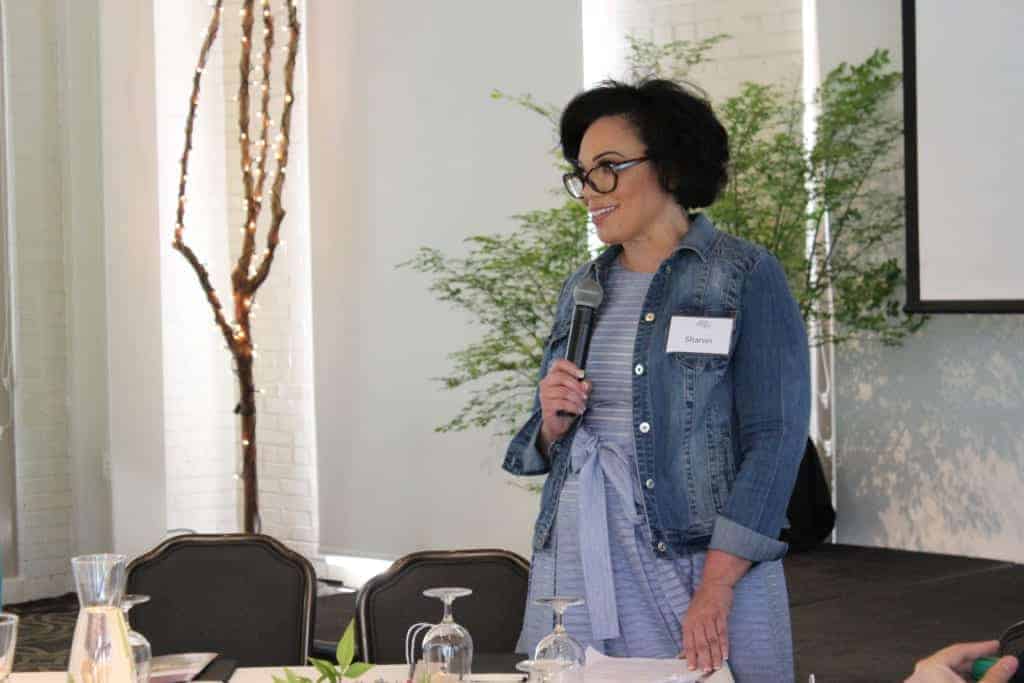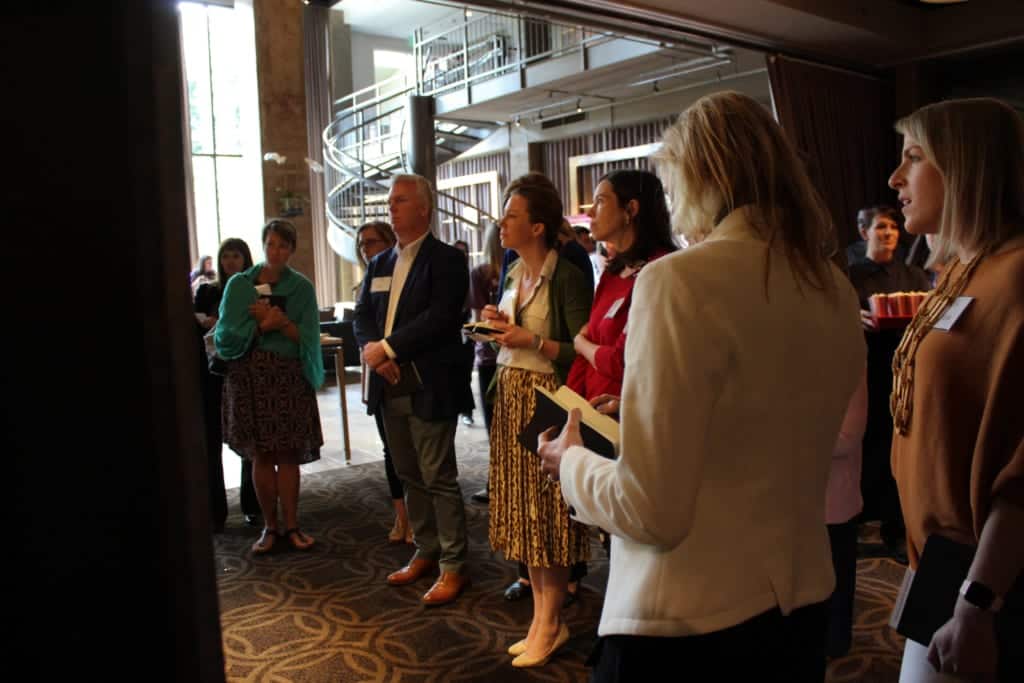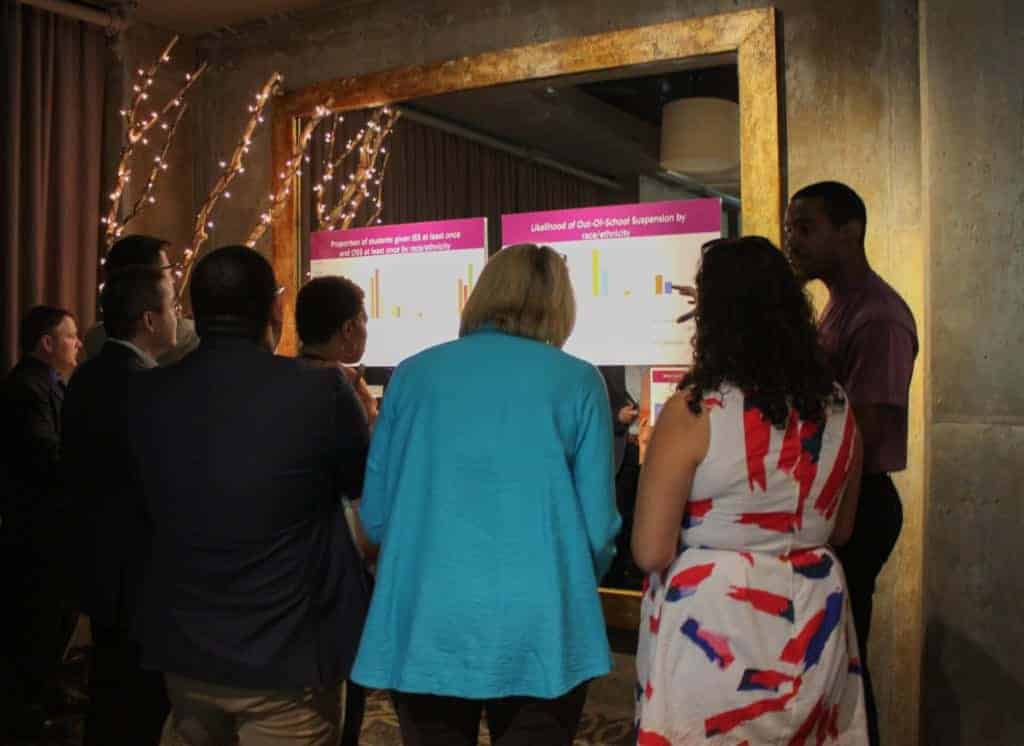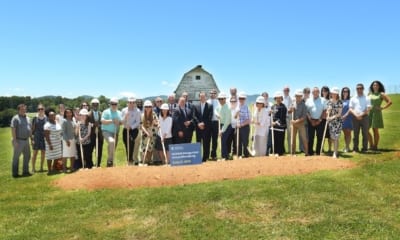Day 1 of Bridge focused on one main theme for education: equity. With student achievement divided along racial/ethnic lines, the gathering made it clear through speaker presentations, panel discussions, and an equity data walk that these disparities can no longer be ignored if North Carolina wants to improve outcomes for all students.
“I believe we can change the life outcomes for students,” said Sharon Contreras, superintendent of Guilford County Schools. “In fact, I know we can.”
Contreras brought the history of Greensboro to back her discussion, sharing the story of students from Dudley High School who took their seats at a Woolworth lunch counter. Their actions would change the course of segregation in America.
“If we could do it on February 1, 1960, we can do it again,” Contreras said.


However, as James Ford, a former NC Teacher of the Year and current State Board of Education member, reminded attendees: “Racial disparities in American public schools are nothing new.”
In fact, he said, “Race and education are married, and they are not so easily divorced.”
To look at the effect of race and ethnicity on educational outcomes, Ford partnered with the North Carolina Center for Public Policy Research to pull student-level data from the 2016-2017 school year and control for gender, free and reduced lunch status, language status, gifted status, and more. The preliminary results of the yearlong study were turned into graphs that were printed and hung from the ceiling, art gallery style, so attendees could do a walk through following Ford’s presentation. The data included indicators like suspension rates by race/ethnicity and if teacher race/ethnicity matches that of their students.




Through the data, Ford said attendees would be able to view racism as a reproduced system.
“What is the machinery, what are the cogs, the wheels, that are holding this system in place?” he asked the audience.
Solutions, he said, would ultimately allow North Carolina students “to spread their wings.” And he’s come up with one solution of his own.
Ford announced the upcoming launch of a new nonprofit named CREED, The Center for Racial Equity in Education. The goal of the nonprofit’s work, Ford said, is that race will no longer be the primary predictor of student outcomes.
Rebecca Tippett of Carolina Demography provided another set of data, including points on racial disparities in high school drop-out rates and postsecondary success. The statistics were part of Tippett’s report, “North Carolina’s Leaky Educational Pipeline.”
Still, Tippett told the audience, “It’s important to realize how much nuance is lost when we talk just about the data.”
She shared how she and her siblings were able to achieve postsecondary education even with challenges because of luck “to be born to the right family, luck to mention your problems to the right person.”
“How can we make these outcomes not about luck, but about a system that encourages equality of outcomes for all students?” she posed to the audience.
The presentations by Ford and Tippett on racial disparities in educational outcomes spurred several comments and questions from attendees.
“As someone in Teach for America, the data wasn’t surprising to me, but that doesn’t make it any less gut-wrenching,” said Andrew Lakis, executive director of TFA-Eastern North Carolina. “This is a systemic problem that is historic in nature.”
Day 1 of Bridge closed with a panel discussion on equity in philanthropy moderated by Ford. Guests included Alfred Mays, program officer at the Burroughs Wellcome Fund, and Dorian Burton, assistant executive director of the Kenan Charitable Trust.
“Charity makes people really happy at cocktail hour,” Burton said. “Justice is righting a wrong.”
In another criticism of the discourse in philanthropy, Burton said the field “rewards people who tell the worst stories the best” by focusing on a deficit-based perspective rather than an asset-based perspective. He encouraged the audience to think about people who are telling the narrative in a different way, because “going into a community, you’re never starting from zero.”
But, ultimately, Burton said, “You can’t have a a conversation about equity without talking about race.” He pointed to a field riddled with buzzwords like low-income and free and reduced lunch.
“What we’re talking about is black and brown kids,” he said pointedly.
Other main points of the panel’s discussion included underfunding of organizations led by people of color, being the only person of color at the table, and truly threading equity throughout an organization as opposed to an individual program or person in charge of equity.
Ford noted a key reason why looking at philanthropy in particular was significant: “If we’re not careful about our giving strategies, we can produce inequity,” he said.
Editor’s Note: This article has been updated with the correct spelling of Rebecca Tippett’s last name.


